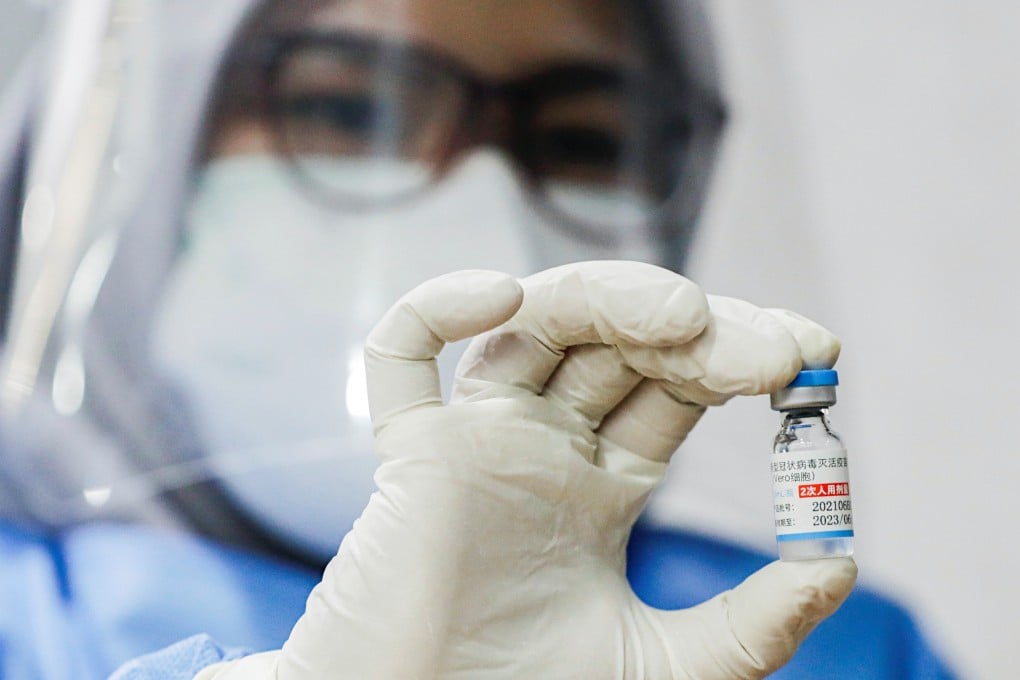Advertisement
Chinese vaccines’ value clarified by real-world data as exports near 1 billion
- Studies in various countries suggest China’s inactivated vaccines may be less effective overall than other jabs but protect against severe illness or death
- Some nations have wavered about administering the vaccines, but experts say they do help governments in need fight the coronavirus
Reading Time:4 minutes
Why you can trust SCMP
99+

China has exported nearly 1 billion doses of Covid-19 vaccines to over 60 countries and pledged 2 billion doses this year, but just how effective the Chinese jabs are, especially against more transmissible or resistant variants, was initially unclear.
The knowledge gap has been partially filled with publication of some large real-world effectiveness studies in countries where the Delta and Gamma variants have been prevalent.
Researchers concluded that the Chinese vaccines were less effective than other vaccines but still offered valuable protection against severe illness or death. Experts argued that the Chinese jabs – approved by the World Health Organization (WHO) for emergency use – were worth having for countries in need.
Advertisement
A study in Bahrain, published last month before peer review, compared four Covid-19 vaccines – the Sinopharm, AstraZeneca, Pfizer-BioNTech and Sputnik shots – between December and July. It found that the Sinopharm vaccine, though effective in preventing hospitalisation and death, worked less well than the others, especially for people aged over 50.

06:18
SCMP Explains: What’s in a Covid-19 vaccine?
SCMP Explains: What’s in a Covid-19 vaccine?
For those in that age group who tested positive for Covid-19, the death rate was 1.53 per cent for patients vaccinated with Sinopharm’s shot, 0.79 for those given the Russian Sputnik V, 0.69 for those with Pfizer-BioNTech’s vaccine and zero for those given AstraZeneca vaccine. The intensive care unit (ICU) admission rate was 1.7 per cent for Sinopharm, 0.23 per cent for Pfizer-BioNTech, 0.17 per cent for AstraZeneca and zero for Sputnik.
Advertisement
Advertisement
Select Voice
Select Speed
1.00x